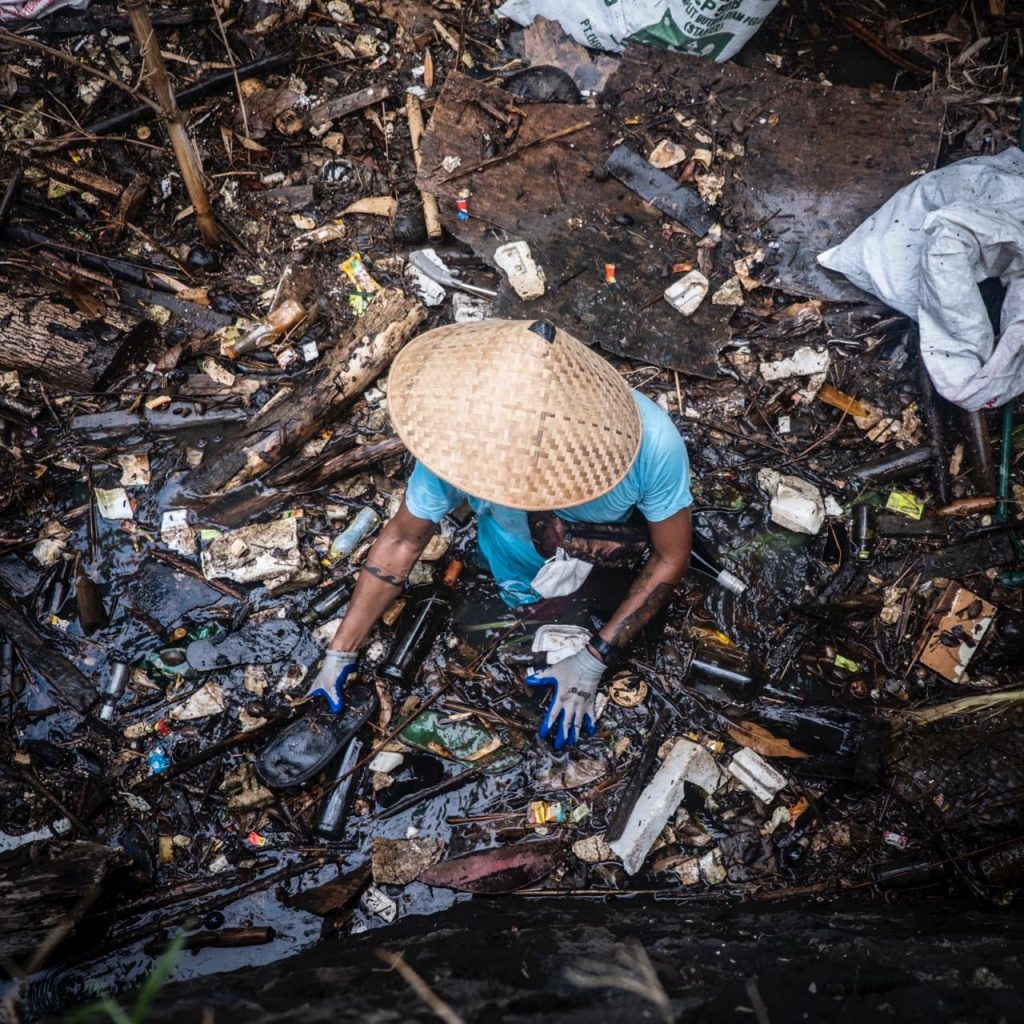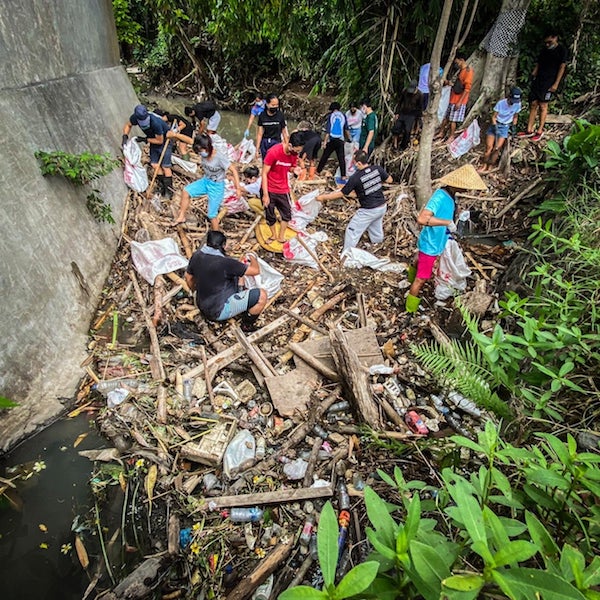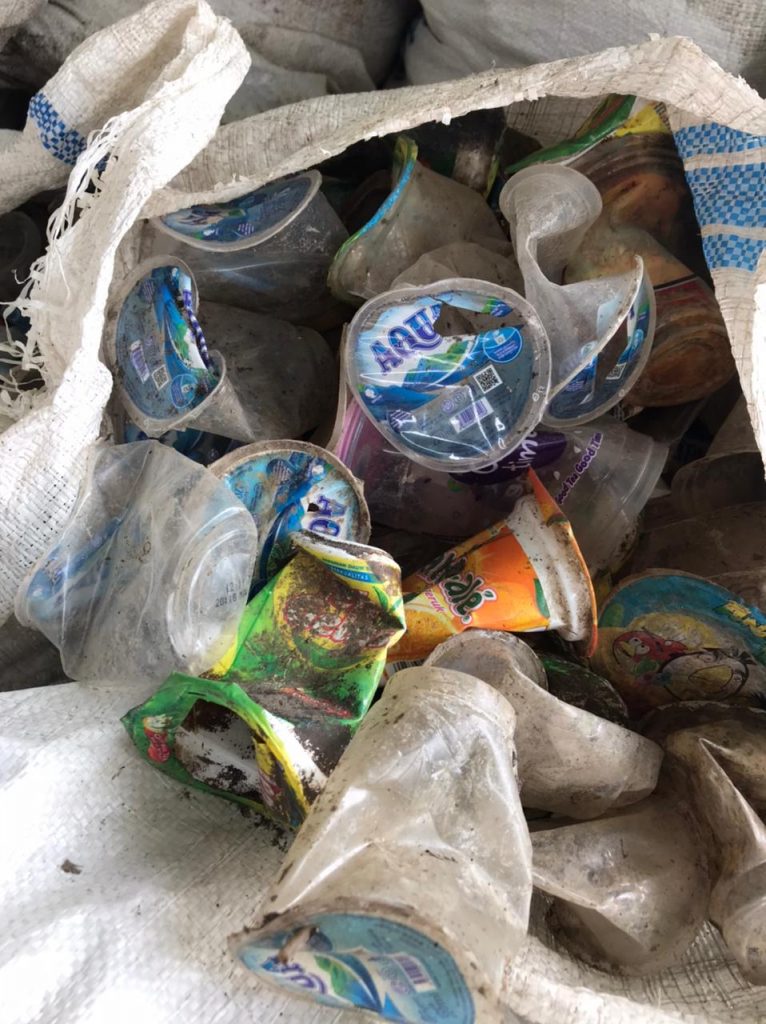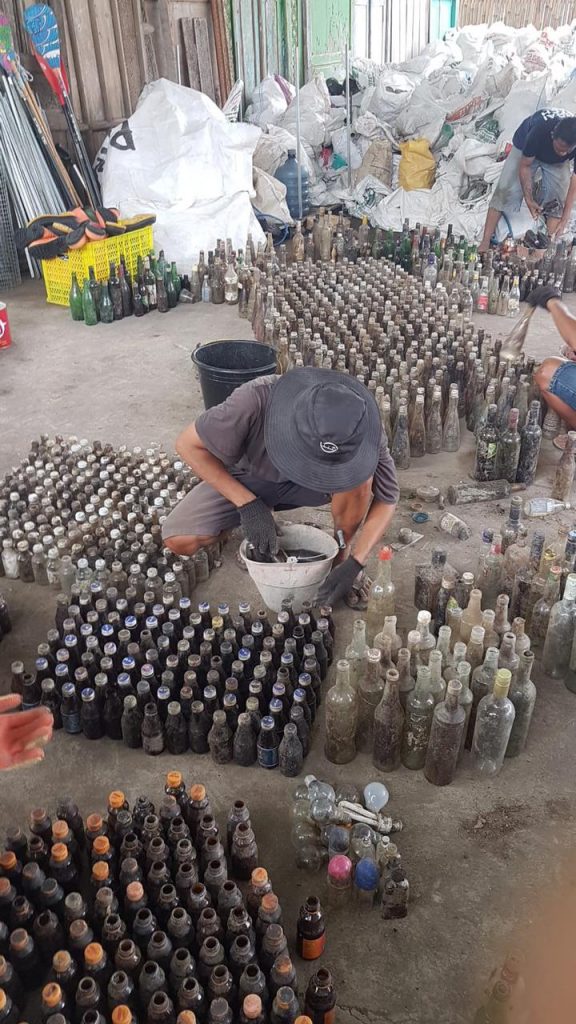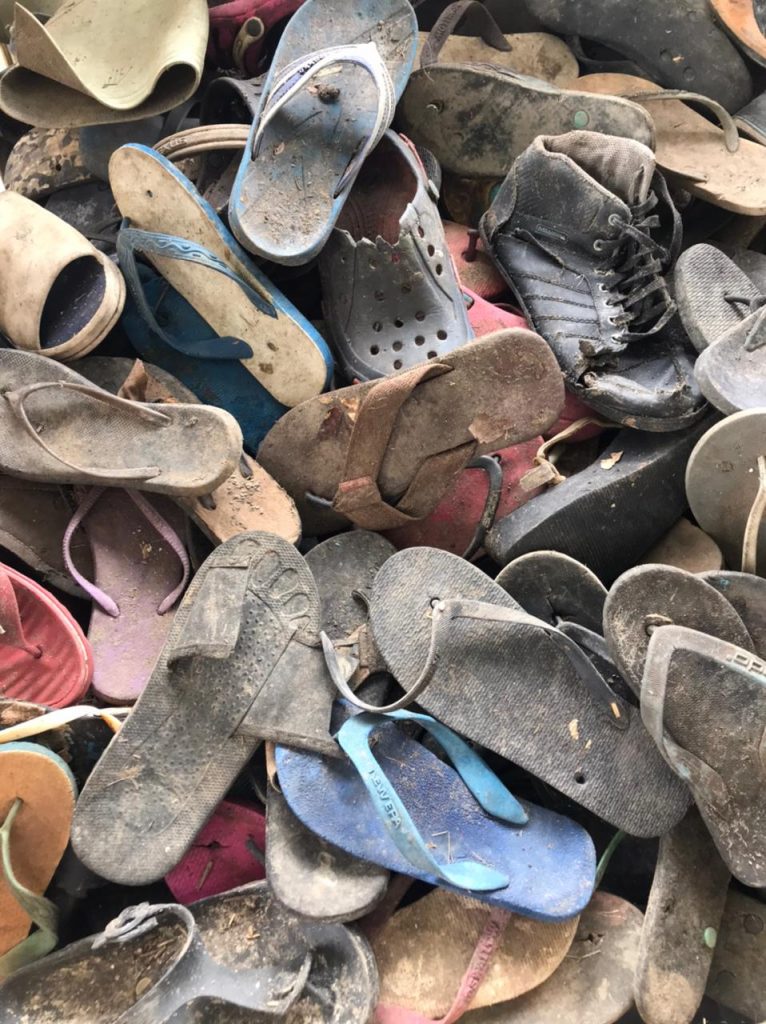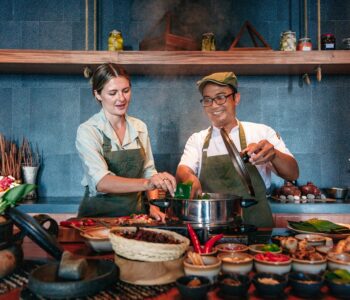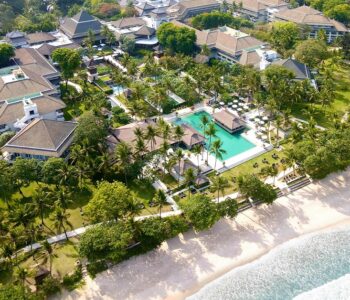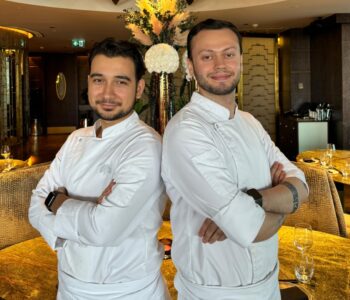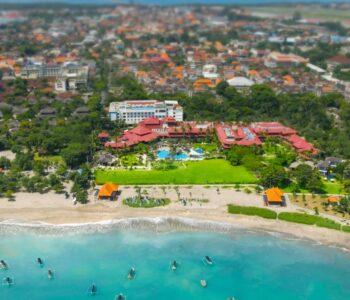Bali-based community organisation, Sungai Watch, released the first ‘River Plastic Report’, gathered from their regular river cleanups, and its findings make for an eye-opening read.
Rivers are the connection point between life on land and the ocean. Starting in Indonesia, Sungai Watch aims to protect the world’s waterways through these mass river cleanups, whilst developing and testing simple trash barriers to prevent plastics from entering the ocean.
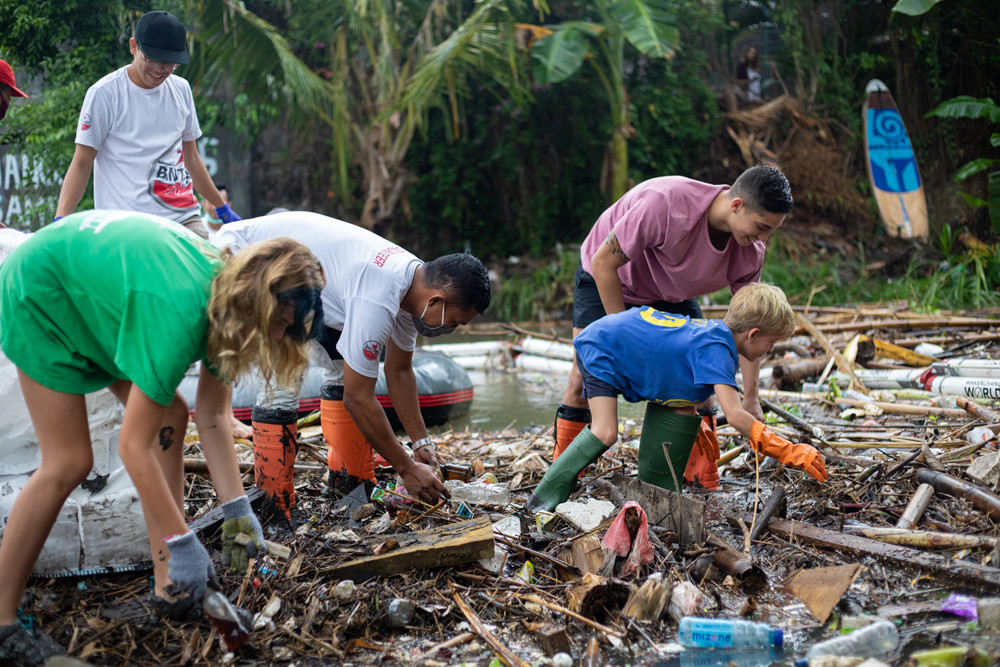
Started by the environmental media outlet, Make a Change World, they spent most of 2020 setting up self-design trash barriers in key rivers around South Bali.
Plastic bags, straws, metals, and styrofoam are among the usual objects retrieved from Sungai Watch’s voluntary cleanup series.
In August and September of last year alone, the volunteers amassed 5.2 tonnes of plastic waste from river banks across southwest Bali but the shocking discovery sheds light on who the biggest polluters are.
The data in the report was manually collected from the cleanups in August and September 2020, organised by their full-time team as well as volunteers, who separated the trash into residual waste and recyclables.
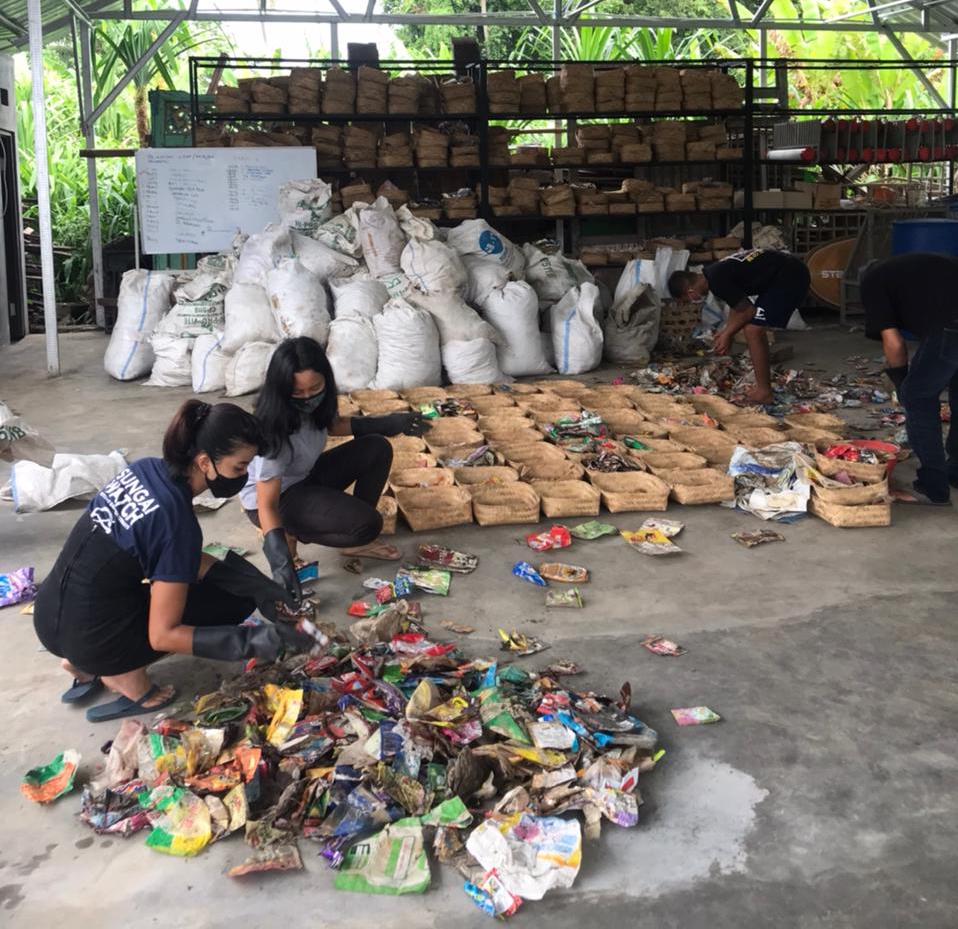
Once pre-sorting is done, they commence the second phase of sorting: Brand Auditing, where the real work begins.
With their first River Plastic Report, Sungai Watch analysed over 400 brands representing over 100 parent companies, whilst noting the different structures of brands and companies.
They documented each single piece of plastic to profile the biggest polluters among these brands, in hopes to bridge an open dialogue to rethink product packaging as well as increase waste collection points.
The most common type of plastic found are plastic bags, falling under ‘Unbranded Waste’, that represent 18.5% of the collected waste. But evidence reveals the largest contributors to plague our rivers to be branded single-use plastics, identified in the report as ‘Fast Consuming Consumer Goods ‘FMCG’ Waste’.
These are goods bearing a clear brand name on the packaging, created to be consumed instantly, such as packaged foods, beverages, toiletries, candies or cosmetics.
The biggest polluting company, concluded in the report, is Indonesia’s number one bottled mineral water producer Danone AQUA with 2,834 pieces of plastics, followed by Wings Corps with 1,928 pieces, and Unilever with 1,625 pieces.
One of the most symbolic plastic items found in the rivers is the Plastic PET Bottle, contributing a 2.3% of the total waste collected. Among the 48 different brands identified, the majority were water bottles produced by Danone AQUA with a total of 1,456 bottles, followed by Teh Pucuk Harum, Sprite, Coca Cola, and Pocari Sweat.
Plastic cups are also a huge culprit, seen as the worst types of plastic pollution. They identified four brands out of the 5,117 cups processed, with the leading polluter being AQUA (Danone), joined by Teh Gelas (Orang Tua), Okay Jelly Drink (Suntory), and Ale Ale (Wings Surya).
Another problematic find is the multilayered sachet that is rarely recyclable. The team gathered a total of 15,856 individual sachets, such as instant noodles, coffee packets, cleaning supplies, and snacks, and identified 336 different brands owned by 86 companies. The most sachets found were those of ABC Kopi and Mie Sedaap’s.
Other branded waste included cans, metals, glass bottles, whilst the unbranded waste consisted mostly of plastic bags and sandals.
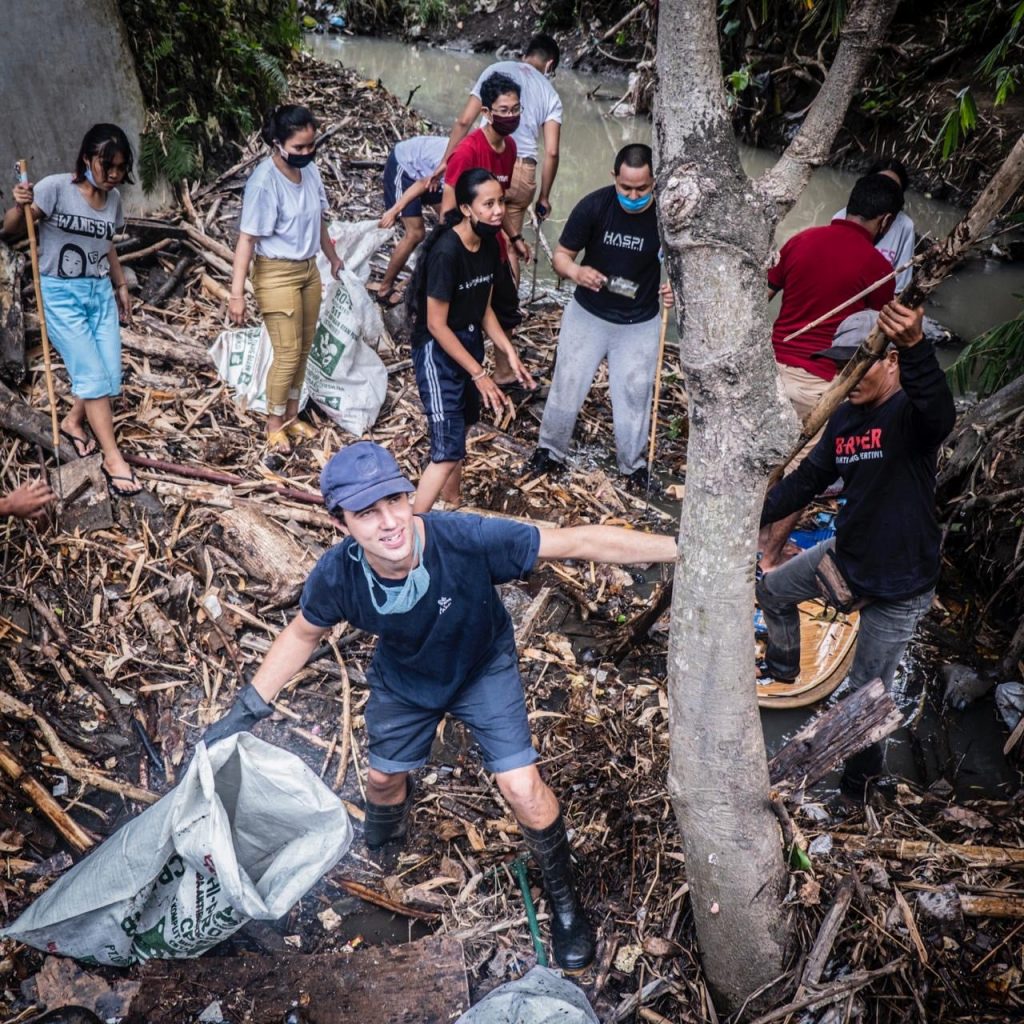
Why do a brand audit of their retrieved river pollution? The community believes in brand responsibility, stating, “At Sungai Watch, we truly believe in the power of data to start a conversation with corporations (regarding their extended producer responsibility), distributors, governments and consumers.”
It’s important to note that whilst there is no direct, extended producer liability under law, there is a moral responsibility. Blame also falls into the users and litters of course, but at the end of the day companies continue to create, promote and popularise said products. Some brands have worked to alleviate their strain on the environment, but unless the problems/products in these reports are addressed, the scenario does not change enough.
This report is one of many; currently the Sungai Watch team is preparing their Oct-Dec report and will then have a monthly report following this. Sungai Watch Founder, Gary Bencheghib, said that this was just the beginning. Whilst achieving their goal of 25 trash barriers in 2020, their goal for 2021 is to have barriers in 100 rivers in Bali by the end of the year. Furthermore, they plan to expand their operations to Java this year, tackling the Citarum River, where Gary’s environmental journey first began.
How can you help? Join the weekly clean ups in Bali, stay updated on locations through their Instagram account. For companies, you can sponsor a barrier to provide funding for the Sungai Watch operations.
To access the full report and read Gary’s solutions, visit https://makeachange.world/sungaiwatch/.

